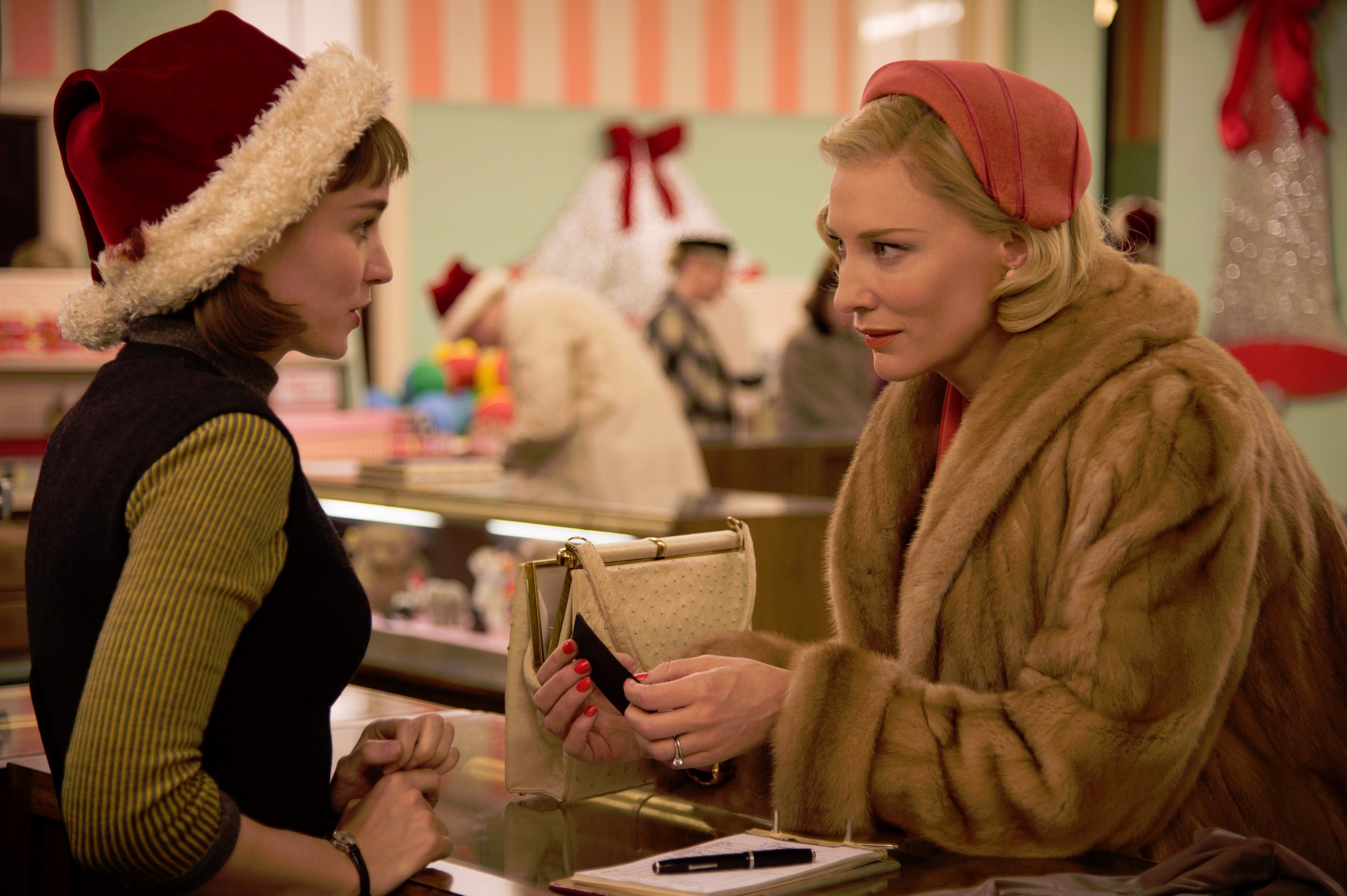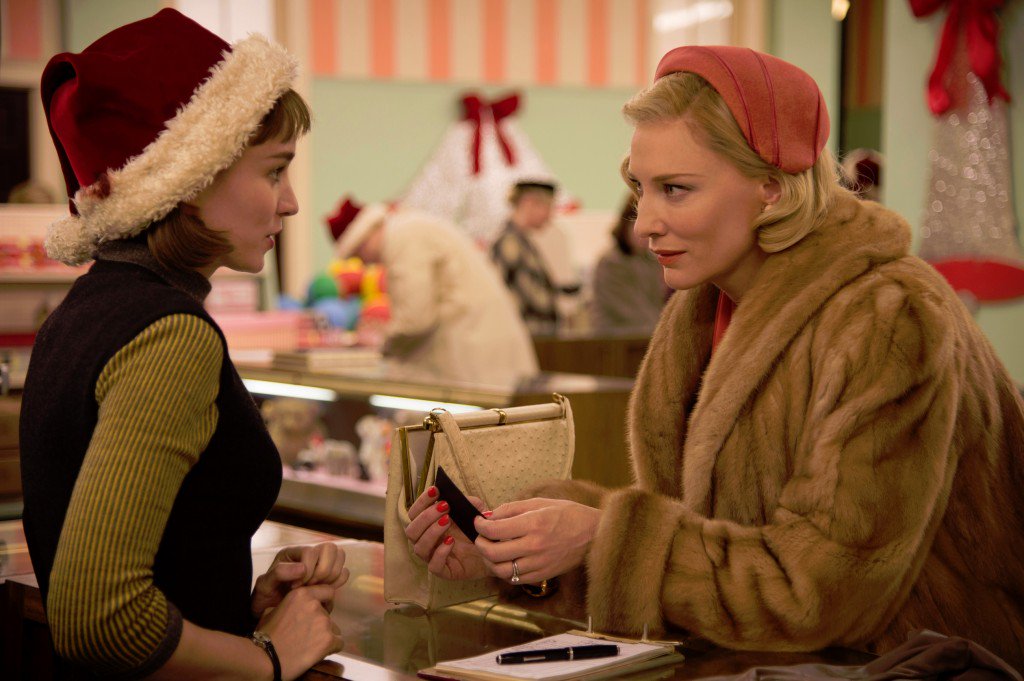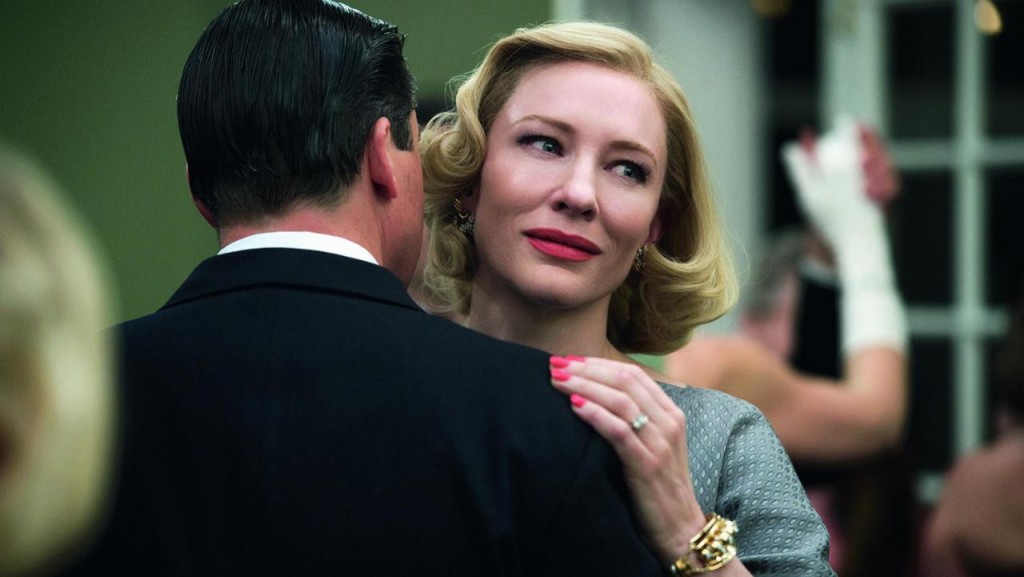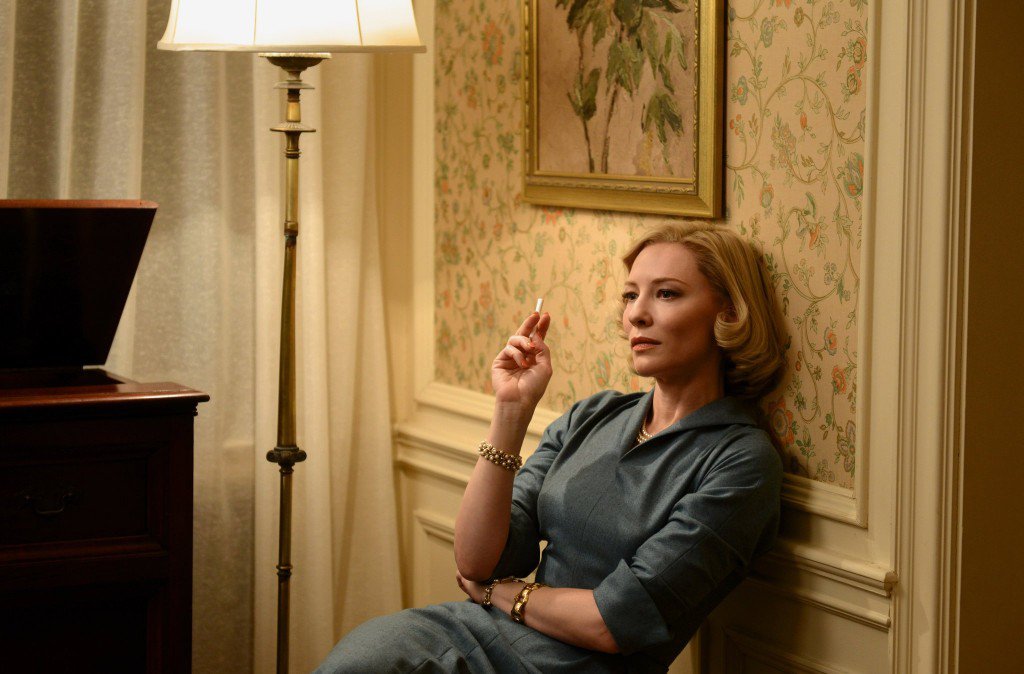Interview | The cast and crew of ‘Carol’ talk to Attitude

The year’s best movie isn’t just a beautifully shot, wonderfully written love story – it’s also a love story between two women. Based on Patricia Highsmith’s groundbreaking novel about the love affair between an unhappy 1950s housewife named Carol (Cate Blanchett, on Oscar-winning form) and a shopgirl named Therese (Rooney Mara, ditto) Carol is getting rave reviews and rightly so. Attitude’s Simon Button meets Blanchett, Mara, director Todd Haynes, screenwriter Phyllis Nagy and producer Elizabeth Karlesen to chat about the film and its contribution to the LGBT debate.
Why do you feel now was the right time to put this story on screen?
Phyllis: At it’s root this is a love story and it’s always the right time for love stories. These two women could be anyone and we don’t necessarily call attention to the fact they are two women in the way that maybe we’re used to seeing such stories. That’s perhaps what makes it a little different.
Cate: I think even if this film had been made five or ten years ago it would have been perceived as being more political. I think the landscape around the conversation about same-sex relationships has advanced, in a lot of countries but not necessarily all countries around the world. It doesn’t have to represent or stand for everyone and therefore the universality of the love story comes to the fore, rather than any sort of political agenda.
Todd: And all love stories need that obstacle, that social obstacle or barrier that keeps the lovers from having full fruition of their feelings for each other. Increasingly that becomes harder and harder to imagine in western life, why two people couldn’t be together. We all remember Brokeback Mountain being such a revelation, a sort of re-excitement of that genre, because of the setting and the time and place. They become these morality stories about social issues.

This is a very interesting time for LGBT rights, with gay marriage being made legal but places like Russia and India effectively banning homosexuality. What do you hope the film will add to the debate?
Elizabeth: One thing about the timing that’s exciting is that this film is getting distribution in countries where even two years ago that would have been impossible, Turkey being an example. The Turkish distributors rang and said from the bottom of their hearts that it means so much to them, that they can release this film and it really will have an impact and possibly engender social change. It’s tough in Russia and China; we cannot sell this film there and I’m sure it will have underground and dangerous distribution. But it can, and I hope will, make a difference and that’s an extraordinary thing.
Todd: What I love is that there was an attendee at the New York Film Festival, a Chinese woman, who said that in China all it takes is women looking at the trailer of Cate and Rooney and they immediately want to turn gay. We were like ‘Awesome, we have billions of new Chinese lesbians’.

Cate and Rooney, how did you develop such amazing screen chemistry?
Rooney: People keep asking about this and my opinion is that chemistry isn’t something you can create, very much like in real life – you either have chemistry with someone or you don’t. It’s not something you can work on and I felt lucky in that it was easy for me to feel chemistry towards Cate. My character spends much of the film sort of in awe of this woman and enamoured with her and that was very easy for me to embody.
Cate: [Laughs] Likewise.
Todd: We also used the ‘chemistry filter’. We shot the whole film through a chemistry silk stocking.
Cate: Both characters are quite isolated – not only because their feelings for each other set them apart from the world they inhabit but also the gap in their ages. They go through a lot of processing of these volcanic feelings independent of one another so frankly it was a relief to do the scenes with Rooney, like ‘Finally, we get to be together’.
How do you feel about the nature of falling in love in the 1950s compared to now?
Cate: There’s a sense that somehow people who fall in love in the 50s, because they’re wearing girdles, don’t feel the same things. It’s about finding the timeless nature of that – the deeply human, eternal side of falling in love. When you fall in love it’s as if no-one else has experienced what you’re experiencing. It’s dangerous, it’s out of control, it’s akin to panic and fear. Your heart literally beats faster and that doesn’t change whether you’re wearing a corset or a G-string. It’s finding that connection.

Todd, how did you settle on the style and tone of the film?
Todd: What’s so interesting about Carol is how it shifts. It begins when we’re sort of looking at Carol through Therese’s eyes and by the end of the film a lot has changed and both of these women have undergone tremendous changes. It’s Carol who re-evaluates this young woman in her life, what it means and how rare it is. She comes back and invites Therese into her life but of course Therese, because she’s weathered pain and developed defences like we all do as we grow up, is no longer that same person. You’re left at the end with a possibility that they have a shot but they’ve also changed a lot.
Who do you feel out of the two women is more of the giver and more of the receiver?
Rooney: [Laughs] You mean sexually…? In a lot of relationship hopefully there’s an equal amount of giving and receiving going on. I definitely feel as though Therese gets so much from Carol but I like to think Carol gets something from her as well.
Cate: It’s like that wonderful moment in dance where you feel someone alight and that’s the feeling of falling in love, isn’t it? You lose a sense of the boundaries of your own skin. That’s when you truly connect with someone. Well, at least that’s been my experience.
Cate, how did you feel when comments you made about having had relationships with women but not sexual ones were taken out of context?
Cate: It’s just funny. If I was playing someone who had an affair I think there’d be a moment of pause before a journalist said ‘So how many affairs have you had?’ I think if I was playing an axe murderer people wouldn’t necessarily ask me how many people I’d murdered. So I probably answered in a way that was a bit facetious to someone who was probably a bit literal and misunderstood what I said.
Carol is in cinemas now.
Words by SIMON BUTTON
